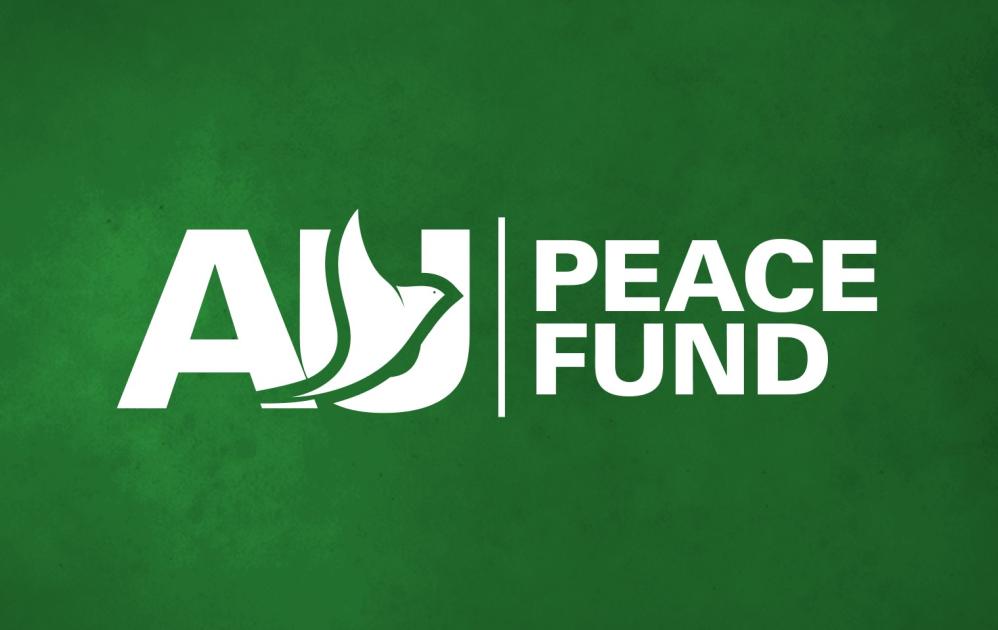
C3S: July 22 hottest day in recent history
July 22 was the hottest day on earth in recent history, according to the Copernicus ...

The nexus between peace, security, and development is well established. Peace and security are a prerequisite for sustainable economic development and vice versa. With focus on the acceleration of the African Continental Free Trade Area (AfCFTA), as the African Union theme of the year 2023, the African Union Commission Director of the Peace Fund Secretariat, Mrs. Dagmawit Moges, in this Op-Ed, shares insight on why and how the Peace Fund is a critical element to support intra-African trade. She elaborates on the distinct but interwoven strategies that can be harnessed to propel Africa towards a prosperous, inclusive, and peaceful future as envisaged in Africa’s Agenda 2063.
AfCFTA and Peace Fund: Engines for Integration, Prosperity, and Peace
As the world’s largest free trade area bringing together 55 countries, the AfCFTA is an innovative instrument for igniting economic integration, prosperity and directly contributes to peace and security in Africa. The AfCFTA is an intra-African trade regime that dismantles trade barriers, thus setting the stage for the increased integration, competitiveness, economic diversification, and investment in African economies. With the fastest growing economies, the youngest population, and a robust labour force, Africa is primed to benefit from a demographic dividend boom. The AfCFTA will enhance the level of trade among African countries, stimulate production through the development of regional value chains to ensure that manufacturing, agricultural processing, and other activities continue to power global markets and strengthen Africa’s economic and commercial impact on the world.
The economic rejuvenation of the AfCFTA carries inherent peace dividends: increased integration, interdependence, and cooperation significantly promotes peace. The AfCFTA forges an integrated economic landscape that acts as a deterrent to conflict due to heightened economic interdependence and activity. By fostering economic growth, and creation of decent jobs, the AfCFTA directly addresses economic inequalities, a well-established root cause of social unrest and conflict, and in doing so, contributes indirectly to stability and security on the continent, amplifying its role beyond economic integration.
Whilst the AfCFTA is the engine driving economic growth, the Peace Fund is a linchpin mechanism that together with other mechanisms instituted by the African Union such as the with the Peace and Security Council, the African Standby Force, the Military Staff Committee, the Continental Early Warning System, and the Panel of the Wise, works to support the prevention, management, and resolution of conflicts, and facilitates timely and effective responses to conflict and crises in Africa. Recognizing that the prosperity of Africa is intricately linked to its stability and security, and as a key pillar of the African Peace and Security Architecture (APSA), the Peace Fund delivers timely and effective support in the areas of mediation and preventive diplomacy, AU led peace support operations, and in the development of core institutional capacities that strengthen responses to conflict and build resilience.
The Peace Fund’s Crisis Reserve Facility (CRF) is designed to swiftly address emerging crises and underscores the readiness of the AU to ensure regional stability. By providing a secure environment, the Peace Fund sets the stage for AfCFTA’s successful implementation, boosting investor confidence and enabling smooth trade relations. This mutually reinforcing relationship illustrates the strategic harmony between AfCFTA and the Peace Fund. The funds have been utilized for the first time in 2023 with the first disbursement of US$ 2 million for the East African Community in June 2023 for the implementation of the “Peace and Security Cooperation Framework for the Democratic Republic of Congo”, and the East African Community Regional Force, as well as US$ 2 million for the African Union Transition Mission in Somalia (ATMIS).
The Nexus: A Virtuous Cycle of Prosperity, Peace, and Stability.
The relationship between AfCFTA and the Peace Fund creates a virtuous cycle that enhances economic prosperity and ensures peace and stability. Peace and stability is enhanced by the utilization of the Peace Fund, and it is a prerequisite for AfCFTA’s seamless implementation. At the same time economic prosperity spurred by AfCFTA can diminish conflict triggers and expand the resource base available for Peace Fund, reinforcing its efforts towards peace and security.
As countries become more economically integrated, the cost of conflict increases, making peace a more attractive option. way, the AfCFTA and the Peace Fund are mutually reinforcing, demonstrating the fundamental symbiosis between economic development and peace and security. This symbiotic relationship extends beyond Africa’s borders. As the continent becomes more peaceful and economically robust, it can forge stronger partnerships on the global stage. A peaceful Africa attracts foreign investment, which further fuels economic growth, while an economically prosperous Africa can contribute more significantly to global peace and security efforts.
As Africa strives to achieve its vision of a unified, peaceful, and prosperous Africa, the intricate nexus between AfCFTA and the Peace Fund remains important mechanisms. The mutual benefits and positive cyclical relationship will propel Africa towards realizing its Agenda 2063. Sustainable peace, security, and economic development in Africa are not just interconnected goals; they are interdependent pillars that uphold the continent’s vision of a unified, peaceful, and prosperous Africa. As the continent continues to strive for this vision, understanding and leveraging the symbiotic relationship between AfCFTA and Peace Fund will undoubtedly be key to its success.
July 22 was the hottest day on earth in recent history, according to the Copernicus ...
Google has engaged in partnership with DHL to utilize the DHL Express GoGreen Plus service ...
Mars has announced registering a record 8% greenhouse gas (GHG) emissions reduction against its 2015 ...


اترك تعليقا